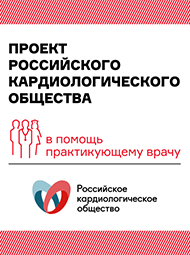Aspirin reduced risk for recurrent VTE
Aspirin after anticoagulation reduced the risk for recurrent venous thromboembolism by more than one-third in patients with a first unprovoked VTE, according to new study results.
Aspirin was not associated with increased risk for bleeding in this patient population, researchers found.
Risk for recurrent VTE
After VTE, defined as deep vein thrombosis or pulmonary embolism, most patients take warfarin or a novel oral anticoagulant for 6 months to 12 months, but remain at risk for recurrent VTE after that, according to the study background. Previous research had shown that prescribing aspirin after discontinuation of anticoagulant therapy appeared to reduce the risk for recurrent VTE, but those studies were not powered to detect treatment effects for specific outcomes or subgroups, the researchers wrote.
John Simes, MD, director of the National Health and Medical Research Council Trials Centre and professor at the University of Sydney, Australia, and colleagues analyzed two trials, ASPIRE and WARFASA (n=1,224 combined), before their results were known to assess the effect of aspirin vs. placebo on recurrent VTE, major vascular events and bleeding in patients with a first unprovoked VTE who had completed initial treatment with heparin plus warfarin or an equivalent anticoagulant regimen.
Patients in both trials were assigned either enteric-coated aspirin 100 mg/day or placebo. Patients were followed for at least 2 years in WARFASA and up to 4 years in ASPIRE.
Simes and colleagues observed 193 episodes of recurrent VTE during a median follow-up period of 30.4 months.
Patients assigned aspirin had a lower rate of recurrent VTE compared with those assigned placebo (7.5%/year vs. 5.1%/year; HR=0.68; 95% CI, 0.51-0.9). According to the researchers, this also held true individually for deep vein thrombosis (HR=0.66; 95% CI, 0.47-0.92) and pulmonary embolism (HR=0.66; 95% CI, 0.41-1.06).
In addition, aspirin was associated with a reduction in major vascular events, defined as recurrent VTE, MI, stroke or CV death (placebo group, 8.7%/year; aspirin group, 5.7%/year; HR=0.66; 95% CI, 0.5-0.86).
Bleeding not a concern
Bleeding rates were low and there was no difference between the groups (placebo group, 0.4%/year; aspirin group, 0.5%/year), according to the researchers.
After adjustment for treatment adherence, recurrent VTE was reduced by 42% in patients assigned aspirin (HR=0.58; 95% CI, 0.4-0.85).
Similar relative risk reductions were observed across subgroups classified by sex, anticoagulation time, age, BMI and event type (P for interaction >.1 for all), although larger absolute risk reductions occurred in men compared with women (absolute risk reduction, 3.3%/year vs. 1.7%/year; number needed to treat, 31 vs. 59) and in patients aged 65 years and older vs. patients aged younger than 65 years (absolute risk reduction, 5.5%/year vs. 1.3%/year; number needed to treat, 19 vs. 78).
“It is not recommended that aspirin be given instead of anticoagulant therapy, but rather to be given to patients who are stopping anticoagulant therapy or for whom such treatments are considered unsuitable,” Simes said in a press release. “Although less effective, aspirin is inexpensive, easily obtainable, safe and familiar to patients and clinicians worldwide. If cost is the main consideration, aspirin is a particularly useful therapy. The costs of treating future thromboembolic events is greater than the cost of the preventive treatment.”
Source: www.healio.com






